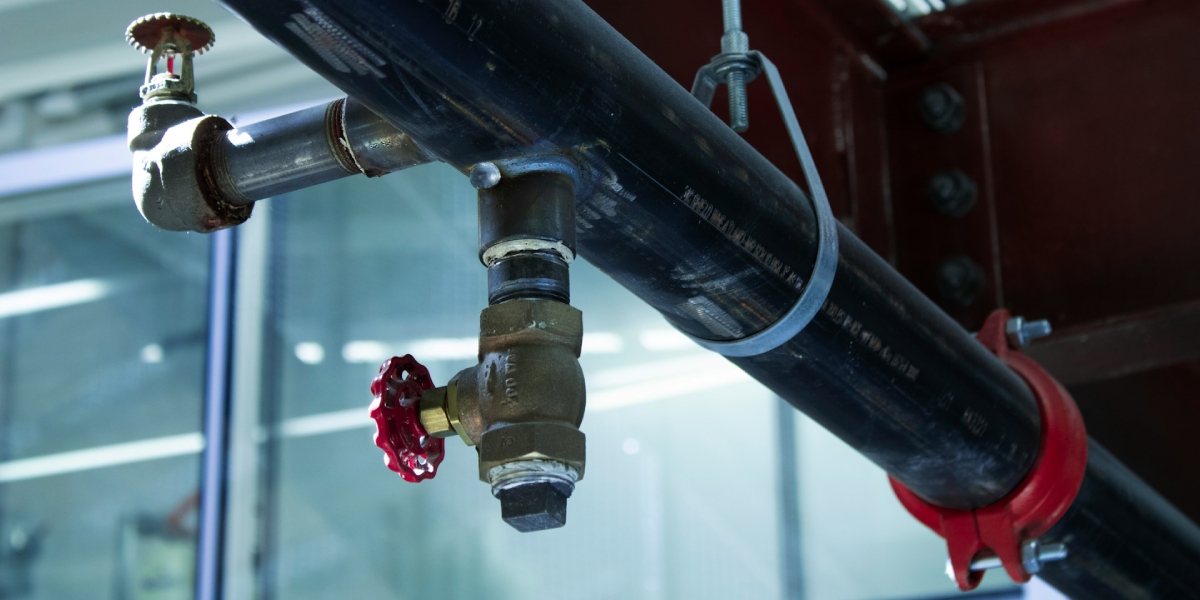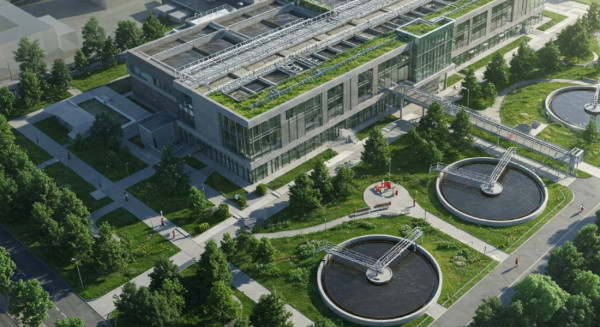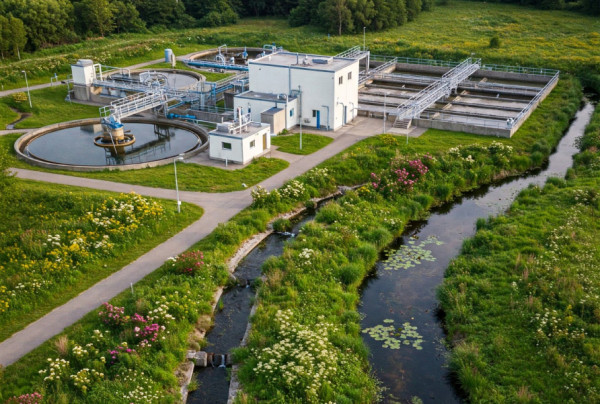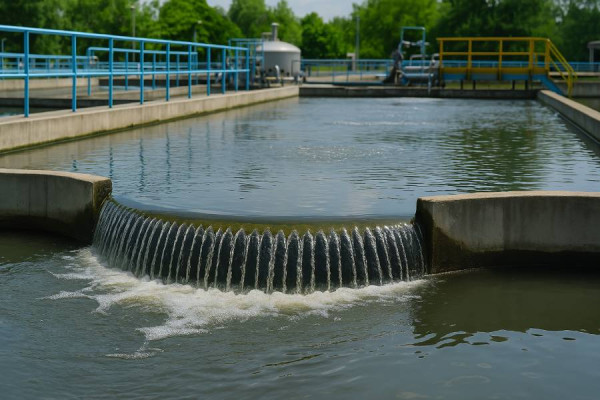News & Blogs
Clean Water Solutions: Revolutionizing Water Treatment in Nepal

Access to clean and safe water has long been a pressing issue in Nepal. With its mountainous terrain and rural communities scattered across remote areas, providing consistent, reliable access to clean water has been a challenge. Yet, there is hope. A wave of innovative water treatment solutions is sweeping across the country, revolutionizing the way water is sourced, treated, and delivered. These advancements are changing lives and improving health outcomes, especially for those most vulnerable to waterborne diseases.
One company at the forefront of this transformation is Civil Tech. With a strong commitment to sustainability and cutting-edge technology, Civil Tech is providing groundbreaking solutions to Nepal’s water crisis. From high-tech filtration systems to state-of-the-art purification methods, they are making clean water a reality for thousands of Nepali communities. In this blog, we delve into the water crisis in Nepal, explore traditional water treatment methods, and examine how Civil Tech is leading a revolution in clean water solutions.
The Water Crisis in Nepal
Nepal’s water crisis is a complex issue that affects millions of people. Despite being rich in water resources, the country faces significant challenges when it comes to accessing clean, safe drinking water. The rapid urbanization, poor infrastructure, and pollution of freshwater sources have compounded these issues, leading to widespread health problems.
According to recent statistics, nearly 20% of Nepal’s population lacks access to clean water, and over 40% of rural households rely on unsafe water sources. This lack of access has resulted in widespread waterborne diseases such as cholera, dysentery, and typhoid. The water crisis in Nepal is not just an environmental issue—it is a health emergency that disproportionately affects the poorest and most remote areas of the country.
Nepal’s diverse geography, from the high-altitude Himalayas to the flat plains of the Terai, makes it difficult to implement a one-size-fits-all solution. Each region faces unique water challenges, ranging from glacial melt to groundwater contamination and seasonal shortages during dry months. This is where the role of innovative clean water solutions becomes crucial in addressing these challenges and ensuring a sustainable water supply.
Traditional Water Treatment Methods in Nepal
Historically, water treatment in Nepal has been basic and largely dependent on traditional methods. In rural areas, the primary sources of water are rivers, streams, and unprotected wells. For generations, locals have relied on simple techniques like boiling, sedimentation, and using alum for purifying water. While these methods have helped to an extent, they fall short in protecting against modern pollutants and microbial contaminants, making them insufficient for today’s needs.
In urban areas, municipalities have tried to provide piped water through public water supply systems. However, these systems are often outdated, inefficient, and prone to leakage. Moreover, due to rapid urban growth, these systems are overwhelmed, leading to shortages and poor water quality. Many urban dwellers are forced to rely on bottled water or small-scale water purification systems, which are costly and unsustainable.
The limitations of traditional water treatment methods underscore the urgent need for modern, technologically advanced solutions. Civil Tech has recognized this need and is working to implement groundbreaking water treatment systems that meet the needs of both rural and urban populations in Nepal.
The Need for Revolutionizing Water Treatment
As Nepal’s population continues to grow and climate change exacerbates water scarcity, the need for revolutionizing water treatment systems is more pressing than ever. Traditional methods and outdated infrastructure can no longer keep up with the increasing demand for clean water. Without intervention, Nepal’s water crisis will worsen, further endangering public health, economic growth, and environmental sustainability.
The solution lies in adopting advanced technologies that can efficiently filter, purify, and manage water resources. Revolutionizing water treatment in Nepal involves not only upgrading the physical systems but also educating communities on sustainable water management practices. This transformation requires collaboration between government agencies, private firms, and international organizations to implement holistic solutions that address both immediate and long-term water needs.
Civil Tech is at the heart of this revolution. Through innovative clean water solutions, they are driving a new era of water treatment in Nepal, ensuring that even the remotest communities have access to safe and reliable water.
Innovative Clean Water Solutions in Nepal
Civil Tech’s commitment to clean water solutions in Nepal goes beyond conventional methods. They are pioneering new technologies that address the root causes of water contamination and scarcity. One of their flagship products is an advanced filtration system that removes bacteria, viruses, and other harmful contaminants from water. These systems are portable, energy-efficient, and designed for both urban and rural environments.
Another innovative solution from Civil Tech is the use of ultraviolet (UV) purification. This technology uses UV light to kill pathogens, making water safe for drinking without the need for harmful chemicals. The system is easy to maintain, making it ideal for use in remote communities where access to technical expertise is limited.
Rainwater harvesting is another key area where Civil Tech is making a difference. By installing rainwater collection systems, Civil Tech is helping rural communities tap into an abundant, natural water source. These systems not only provide clean water but also reduce dependency on overburdened groundwater and surface water sources.
Technology-Driven Water Treatment Systems
What sets Civil Tech apart is its focus on technology-driven water treatment systems that are designed for Nepal’s unique challenges. These systems are built with sustainability in mind, using solar power for energy and materials that are durable enough to withstand Nepal’s diverse climate conditions.
Civil Tech’s smart water management systems are another example of how technology is revolutionizing water treatment. These systems monitor water quality in real-time, allowing for immediate intervention when contamination is detected. By integrating Internet of Things (IoT) technology, Civil Tech ensures that water quality can be monitored and maintained even in the most remote areas.
Such technological innovations are not just limited to purification. Civil Tech is also focusing on improving water distribution systems, reducing leakage, and optimizing water storage capacities. This holistic approach ensures that water treatment is effective from source to tap.
Impact of Clean Water Solutions in Nepal
The impact of these clean water solutions on Nepali communities has been profound. In areas where Civil Tech has implemented its water treatment systems, waterborne diseases have significantly decreased, and overall health outcomes have improved. Access to clean water has also had a ripple effect on education and economic development, particularly for women and children who traditionally bear the burden of fetching water from distant sources.
Moreover, Civil Tech’s solutions are helping to promote sustainable water use, reducing pressure on already strained water resources. By providing communities with the tools and knowledge to manage their water supply effectively, Civil Tech is not only solving today’s water problems but also ensuring that future generations will have access to clean water.
Challenges in Implementing Clean Water Solutions
Despite these successes, implementing clean water solutions in Nepal is not without its challenges. The country’s rugged terrain makes it difficult to install and maintain infrastructure in remote areas. Additionally, there is often a lack of technical expertise and resources to ensure the long-term sustainability of water treatment systems.
Another challenge is the financial cost. While the technologies are effective, they can be expensive to install and maintain, particularly in low-income communities. Civil Tech is addressing this issue by working with governments and international donors to secure funding and provide subsidies for the most vulnerable communities.
Cultural beliefs and practices also pose challenges. In some areas, there is resistance to adopting new water treatment methods due to traditional practices and skepticism about the safety of modern technologies. Civil Tech is working closely with local communities to raise awareness and build trust in their systems.
Collaborations and Partnerships for Clean Water Solutions
Collaboration is key to the success of clean water solutions in Nepal. Civil Tech has partnered with local governments, international organizations, and community groups to implement their water treatment systems. These partnerships have been instrumental in overcoming logistical challenges and ensuring that solutions are tailored to the specific needs of each community.
Through these collaborations, Civil Tech has been able to scale its operations and reach more communities across Nepal. They are also working with educational institutions to train local technicians, ensuring that water treatment systems can be maintained and managed locally.
A Brighter Future for Clean Water in Nepal
As Nepal continues to grapple with the challenges of water scarcity and contamination, innovative clean water solutions offer a beacon of hope. Companies like Civil Tech are leading the way, using cutting-edge technology and sustainable practices to revolutionize water treatment in the country.
The impact of these solutions is already being felt, with improved health outcomes, increased access to clean water, and more resilient communities. However, there is still much work to be done. By continuing to innovate, collaborate, and educate, Civil Tech is paving the way for a brighter, more sustainable future for clean water in Nepal.



